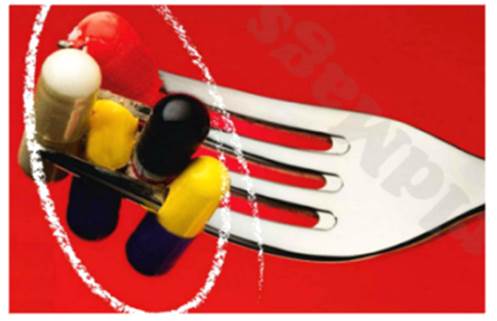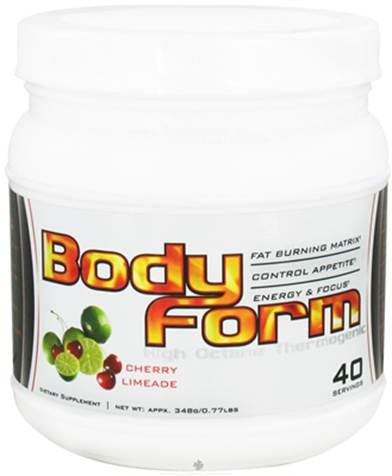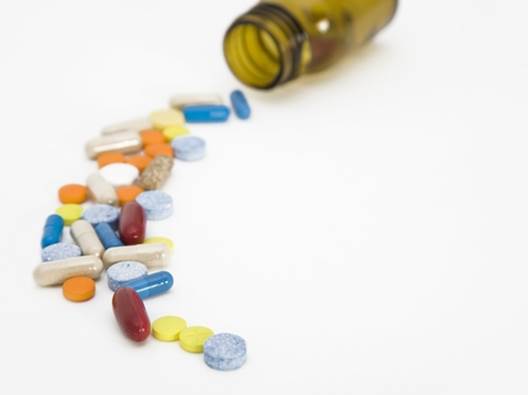Many of them don’t work, the side
effects are at best unpleasant and at worst harmful, and so-called natural
products are laced with highly addictive stimulants. What’s really in your diet
pills?
In September, we read a shocking story in
the newspapers. A 46-year-old woman had been given just ten years to live
following a four-year addiction to the drug ephedrine. Although ephedrine is
perfectly safe in the small quantities used in over the counter cold remedies,
higher doses are taken by some women keen to lose weight and, in this case,
they had caused her to develop a heart condition. “I’ve been handed a death
sentence,” she said. “It never occurred to me these pills could be so dangerous.”
Alarmingly, she’s not alone: many women are ignoring the dangers of diet drugs
in the pursuit of thinness.

Many
women are ignoring the dangers of diet drugs in the pursuit of thinness.
“Although I’m a size 12, I wanted to shift
a few pounds,” says Keeley Howleet, 36. “People were raving about how raspberry
ketone pills could speed up the breakdown of fat cells, so I bought some
online. I work in advertising so I know about hype, but what if these really
worked? If anything, I gained weight, thinking that the odd bag of crisps
wouldn’t hurt.”
The pop-a-pill-drop-pounds promise is
seductive. From women trying to lose weight for a holiday to paparazzi
favourites such as Kim Kardashian (she’s the face of US brand QuickTrim),
there’s no single type of person who takes these drugs. Nor is there a single
style of pill. We uncover the good, the bad and the ugly side of these
purportedly fat-busting products.
On the high street
This is where most of us start our
slimming-aid quest. It is the happy, shiny, safe feeling side of an industry
that, according to Euromonitor International, was worth $189 million in the UK
in 2011. So-called natural, over the counter slimming pills take four main
forms: Thermogenics, which include ingredients such as green tea and caffeine to
raise the metabolism; binders, which block the amount of fat or carbohydrate
you absorb; blood-sugar balancers, such as chromium, which stop food cravings;
and appetite suppressants, such as Konjac fibre, which swell in your stomach
and reduce hunger.

Covered by strict regulation in the UK,
most of the products sold in chemists are safe if used as directed. But Rick
Miller of the British Dietetic Association warns, “Those containing high levels
of caffeine can cause sudden rises in blood pressure, and using fat binders
long-term can interfere with your absorption of vitamins A, D and K.”
However they claim to work, it seems many
of these products are more likely to slim down your wallet than your waistline.
A recent US study by Dr Melinda Manore at Oregon State University found the
maximum weight loss achieved with diet pills is less than 4lb (and that’s when
combined with a healthy diet), while only three ingredients had clinical
evidence of efficacy: green tea, which raises the metabolism; fibre, which
fills you up; and calcium, which may alter the way we burn fat.
According to Dr David Haslam of the
National Obesity Forum, “Ingredients that have promising results in trials are
often used in a different from or at lower, less effective levels in the end
product.” Take the herb hoodia, which is no longer legally sold in the UK.
There are 13 types, but only one hoodia gordonii has been shown to aid weight
loss. “It was once calculated there wasn’t enough hoodia gordonii on earth to
fill all the supplements supposedly containing it,” says Dr Haslam.
“A study found the maximum weight
loss achieved with slimming pills is less than 4lb”
The online lottery
Ordering online is like playing Russian
roulette. In October, reports emerged of a woman had ended up in hospital just
days after taking a product called Botanical Soft Gel, which she’d ordered; she
wanted to lose a few pounds before a holiday. An investigation by the Irish
Medicines Board discovered the gel contained Sibutramine, an amphetamine like
medicine used to assist weight loss in obese adults and banned in the EU three
years ago. The gel had swelled in her intestine, blocking off the blood supply,
and the only solution was to remove part of her colon Sibutramine has also been
linked to heart attacks and strokes, yet a search of weight-loss forums reveals
women are still trying to source it. Others are using drugs such as Adderall,
the attention deficit hyperactivity disorder medication, or Clenbuterol, a
horse steroid. Apart from the dangers of side-effects and addiction, these
women risk buying fakes latest figures indicate 24 per cent of drugs detained
at European borders are counterfeit.

Ordering
online is like playing Russian roulette
Powerfully addictive
“The number of women we’re seeing with
problems concerning slimming pills has probably doubled in the past year,” says
addiction specialist Dr Willian Shanahan from Capio Nightingale Hospital in
London, who adds that a lot of the women he treats have no idea what’s in these
pills. Some contain high doses of ephedrine; excessive intake of this drug has
been linked to addiction, seizures and strokes, as well as heart failure. Other
products have been found to be laced with Prozac, Lithium, suspected carcinogens
and even ingredients used in the manufacture of explosives.
There is one over-the-counter pill that
does work: Alli. Licensed for use in people with a BMI of more than 28 (a
healthy BMI is between 18.5 and 25), it works by stopping your body from absorbing
a quarter of the fat you eat and passing it out through stools. Results show a
loss of around 8.5lb in a year against a placebo. However, a side effect is
diarrhea so sudden that the company suggests you carry a change of clothes when
you start using it. But this could be responsible for its success. “I’m too
scared to eat any fat in case I have accident,” says Jenny, 35, who has just
started taking Alli. “You have to improve your diet and you therefore lose
weight.”
Therein lies the rub with every diet pill.
“There is no such thing as a miracle weight-loss pill and any company that
advertises otherwise is lying, “says Simon Bandy from supplement company Health
Plus. “The key is in the name it’s a supplement. A supplement to diet and
exercise that perhaps, in the case of, say, Konjac bibre, makes it a bit easier
to cut back on calories. You can’t take a pill, eat cheeseburgers and lose
weight. And the sooner everyone realises that the better.”